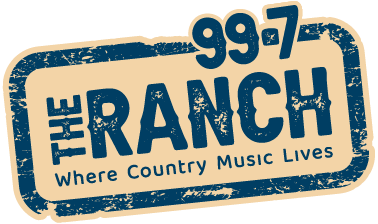While many will be celebrating Canada’s 150th birthday this year, the past century and a half hasn’t been a smooth ride for everybody to say the least.
The Mannawanis Native Friendship Centre in St. Paul is teaming up with the John Humphrey Centre for Peace and Human Rights to bring “This is Our Canada: An Intergenerational Conversation on Canada’s 150th” on the 28th and 29th.
“This is for our community to talk about the history of St. Paul and to have a conversation around some of the relationships that our in our community,” explains Executive Director with the Centre Hinano Rosa. “We’re surrounded by four major reserves and two Métis settlements. This whole thing is just to have open discussions on the history of St. Paul, because the St. Paul would probably be the history of all of Canada.”
Rosa adds that Canada 150 isn’t the same for everybody. “For Canadians it’s a celebration of a hundred and fifty years of this union. For native people, it’s not a hundred and fifty years of good things for them. They’ve had to struggle through all of those things with the Indian act, the deterioration of some treaties in how the government acts towards Indigenous people, residential schools – which happened even here in our community. They’re tough issues to address. We’re inviting everybody to come and we’re also focusing the 94 recommendations from the Truth and Reconciliation Commission.”
The Friendship Centre’s Facebook page for the event outlines the following schedule:
Saturday (Jan. 28th)
1pm – Challenging Canada 150: Getting Real with our History Workshop Dialogue
This workshop will take participants through an exploration of critical milestones in in the history of St. Paul, Alberta and Canada while discussing how these milestones reflect in our community today.
The timeline exploration will be followed by a community circle which will facilitate a deepened critical conversation across generations on the meaning of Canada’s 150th for St. Paul and and reflect on the journey beyond.
6pm- Feast & Community Art Project
Wrapping up the day we turn our conversation into a visual and collaborative expression of Canada’s 150th with local artist Lana Whiskeyjack
Sunday (Jan. 29th)
10am – Human Rights Training Session:
UNDRIP as a Tool for Reconciliation
Rosa highlights a few events that happened in St. Paul that might not always get told. “The name of our Friendship Centre is called Mana-wan-say, everybody just says Mana-wann-is or Mahna-wahn-is. It means ‘Duck Egg’ Gathering site.” Aboriginals would gather duck eggs from the nearby lake before colonization.
“The lake is still here, but it goes by another name now. It goes by Uppper Therrien Lake. It was named after a Catholic priest named Father Therrien. One time he came to St. Paul when it was called St. Paul des Métis when it was a Métis settlement. He was able to move the Métis people to another place and when they came back, they had French settlers living in their homes. He had written Ottawa to send settlers here because the Métis people were not productive.
“Only the families that businesses stayed and those that didn’t look indigenous stayed as well. So there’s still some some people from the original settlement here. As a result of [the displacement], Fishing Lake, Elizabeth Settlement and Kikino Settlement was where the people who left settled. So those three settlements are a result of Métis people being displaced from St. Paul Des Métis.”
St. Paul was also home to a Métis Residential school, which burned down many years ago. “That information is just being found out by a lot of people in this community and the elders are confirming it now. A lot of people that lived here for a long time didn’t even know there was a Métis residential school in St. Paul.”
Rosa says the talks are part of bringing Canadians together. “The indigenous story -all of it; residential schools, colonization. Those are all the stories that is Canada’s story. That’s Canada’s history.”



